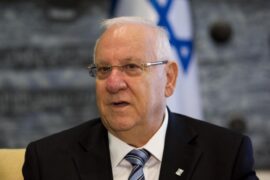Support for a two-state solution amongst Israelis and Palestinians has dropped to a record low following decades of American-imposed policies aimed at partitioning the country in half, according to new data released by a private survey on Monday.
According to the poll conducted at the end of June by Dr. Dahlia Scheindlin of Tel Aviv University and Dr. Khalil Shikaki of Ramallah’s Palestinian Center for Policy and Survey Research (PSR), only 49% of Israelis and 43 percent of Palestinians are in favor of partitioning the land into two states, a decline of 9 and 8 points since 2016, respectively.
Support for a two-state solution, which became the official solution of the capitalist powers in November 1947 and has been aggressively pushed by Washington since the beginning of the Oslo process in the early 90s, has been steadily eroding amongst Jews and Palestinians for a decade. As recently as 2010, when partition was largely viewed as the only potential solution to the conflict, 71% of Israelis and 57% of Palestinians favored partition.
A total of 1,600 Israelis and 2,150 Palestinians in the West Bank and Gaza were polled on their views of a hypothetical peace deal consisting of a de-militarized Palestinian state, an Israeli withdrawal to the 1967 borders with equal territorial exchange, family unification in Israel of 100,000 Palestinian refugees, western Jerusalem as the capital of Israel and eastern Jerusalem as the capital of a Palestinian state, the Western Wall and Jewish quarter of ancient Jerusalem under Israeli sovereignty and the rest of the Old City and Temple Mount under Palestinian rule, and the end of the conflict and all claims.
Only 37 % of Palestinians and 39 percent of Israelis said they supported such an agreement. Only 9% of Palestinians favor the idea of one state with equality for both peoples and 17% wanted the expulsion of Jews. Another 8% wanted a state in historic Palestine without full rights to Jews.
Nineteen percent of Israelis expressed support for a unitary state with equal rights for both Jews and Palestinians while 15 percent voiced their approval for Israel fully annexing the Samaria and Judea regions without extending equal rights to Palestinians. 8% favored the expulsion of Palestinians altogether.
The pollsters noted that many Israelis and Palestinians believe that Jewish communities in the West Bank have grown to the point of making partition no longer viable, validating the primary method of struggle for those Jews opposed to dividing the land.
While it’s encouraging to see more and more Israelis and Palestinians move past the failed notion of partition, it’s important to present both publics with viable alternative solutions that can successfully address the core grievances and aspirations of each people. Israelis and Palestinians need a solution we can each get excited about.
Overall, trust between the two sides seems to have broken down nearly completely, with only a quarter of Israelis trusting Palestinians and 11 percent of Palestinians reciprocating trusting Israelis. Both sides are extremely skeptical that a Palestinian state could be established within the next five years, with 72% of Palestinians and 81 percent of Israelis stating that they do not expect this to happen.
The poll had a margin of error of 2.5 percent and was supported by the United Nations, European Union and Japan.






In an article about poll results, please include the raw data. How was the question phrased?